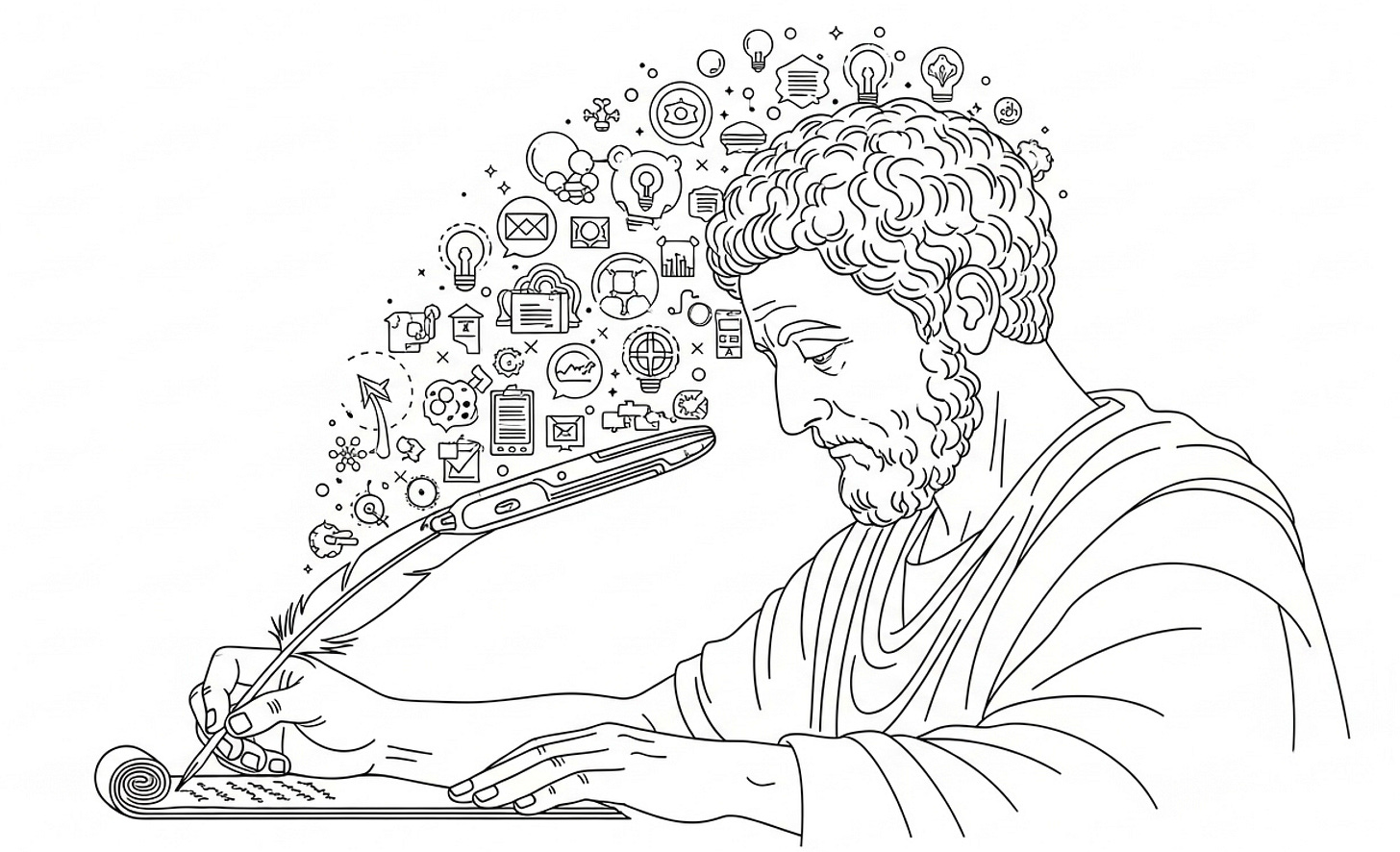An IDE or everything app?
First we shape our tools. Then they shape what we imagine.
Open Claude Code today and the moment Opus 41 springs to life in your terminal, you realize you're interacting with something truly close to an amplifier.
It reads your entire project context in minutes.
It can plan, execute, and explain.
It bridges the gap between intention and implementation. It turns thought — especially well structured thought — into coherent action.
The center of gravity shifts from manual manipulation into a partnership of sorts.
Claude Code operates where context density is highest: your full codebase with commit history, work-plans and the half‑formed ideas in your brainstorm/scratch files.
Many other AI tools require you to reconstruct context: Claude Code inherits it. Its a main reason why we’re building bearclaude.com.
Contextual extension
Labs talk a big game about reasoning2. But I can attest that the real magic happens when the model becomes an extension of your working memory.
Claude Code and the ilk can be absorb context about your patterns: how you structure tests, where you keep documentation, which conventions you follow across projects encapsulated in claude.md.
Two consequences follow:
Mental load shifts from recall to direction. If the agent already knows your API schemas, db migrations and project structure, you spend less time juggling implementation details and concentrate on steering toward outcomes.
Local context becomes a thinking partner. Once the agent can see your
IMPLEMENTATION_PLAN.mdalongside your codebase, the IDE becomes a harness that channels intent into action.
The demand of cognitive trust
Claude Code can read a feature request in local markdown, understand the existing architecture, implement changes across multiple files, run tests, build and iterate: all while maintaining your coding patterns, style guides and project conventions.
This cognitive delegation works because the harness is secure: the agent operates within your trusted workspace, using your permissions, following your established patterns.
That matters: each decision surfaces for confirmation (personally I don’t dangerously skip permissions). I want my mental model of whats changing to stay intact.
Cloud agents promises infinite scale. But for deep work I think the calculus is different: I’m yet not bought in to context fully leaving my machine.
Personally I think patterns, notes, and strategic direction needs local attention. And its not just about privacy.
Flow requires minimal latency. A lot of folks are talking about Jules, Codex and Cursor background agents and the pattern of delegating tasks for code gen.
But when the harness has to wait for asynchronous remote execution, your thought process fragments.
I might change my mind but at this moment I think trust demands both transparency and attention. You need to understand what the agent sees and how it reasons about your context. You often need to intervene.
In this way Claude Code (and tools like it) becomes part of your environment where thoughts and execution you can actually understand coexist.
The human thinking machine
When you use Claude Code to execute a complex plan, draft documentation, or analyze patterns across your project history, you realize that the "code" in Claude Code isn’t just about programming.
It's about structured thinking, iterative refinement and controllable execution.
Replace "developer" with "knowledge worker" and real meaning is imbued in the phrase.
If your work involves transforming ideas into artifacts, the IDE‑turned‑thinking‑harness becomes a new cognitive operating system.
As agents becomes more capable they can help shape new thought pattens.
When you can delegate implementation details you’re able to abstract your thinking.
When you can instantly explore "what if" scenarios, you develop more exploratory mental habits.
When context switching costs has minimal implications you start connecting ideas across previously isolated domains.
The mind adapts and converts to its own purposes the obstacle to our acting. The impediment to action advances action. What stands in the way becomes the way. — V. 20
Our obstacles have long been cognitive fragmentation. We've become accustomed to working across scattered tools, surfaces and duplicative context.
Each exerting significant mental overhead.
By creating a harness that can access necessary context we’re much more apt to execute our intentions. You and I can convert those previous obstacles into leverage.
So fire up Claude Code or better yet Bearclaude.
And soon, whether its coding, marketing, writing or analysis, recognize that what we have access to today isn’t just a development tool.
Its much closer to a prosthetic. One that is fantastic at the translation of structured thought into action.
And know this: the everything app isn’t “coming”. It’s already available here and now. Its waiting for you to help think alongside it and shape what you can imagine.
Apparently Grok 4 heavy doesn’t even show you its reasoning process… I don’t know, haven’t tried it yet.



